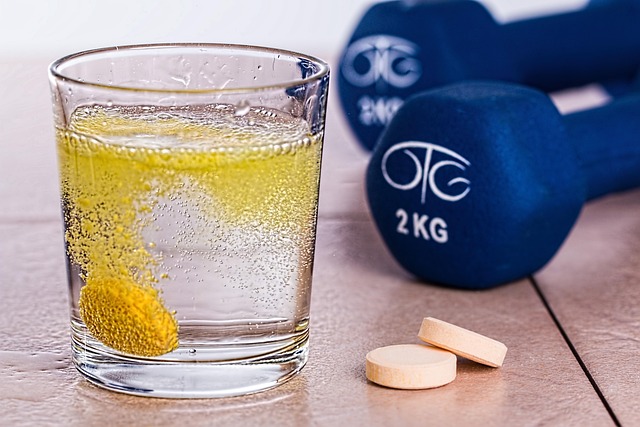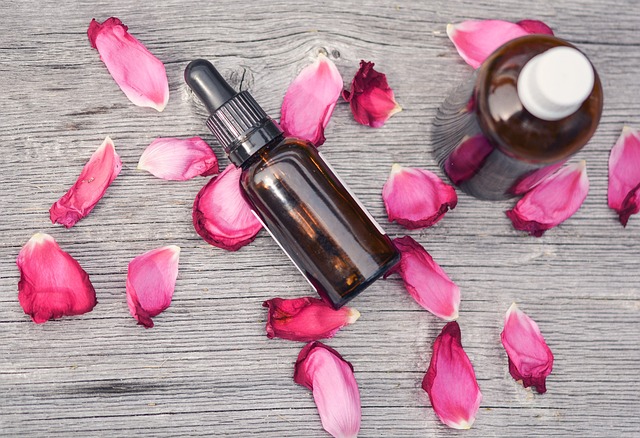This section highlights the role of anti-inflammatory therapies in addressing swelling and discomfort stemming from inflammation. It explains that while acute inflammation aids healing, chronic inflammation causes persistent issues. Natural remedies like dietary changes (omega-3 fatty acids), aromatherapy, acupuncture, herbal treatments (turmeric, ginger), and practices like stress reduction offer effective, holistic relief without synthetic drugs. Scientific research supports many of these traditional methods, emphasizing their safety and effectiveness in managing pain and inflammation naturally.
Swelling and discomfort are common issues that can be exacerbated by daily stressors. Understanding the root cause, often tied to inflammation, is key to effective relief. This article explores natural anti-inflammatory therapies proven to alleviate swelling and discomfort, from turmeric to arnica. We delve into how these remedies work, their integration into daily routines, and scientific insights on safety and efficacy. Discover a holistic approach to managing pain with powerful, nature-derived solutions.
- Understanding Swelling and Discomfort: The Role of Inflammation
- Exploring Nature's Arsenal: Top Anti-Inflammatory Remedies
- Integrating Natural Therapies into Your Routine
- Scientific Insights: Efficacy and Safety Considerations
Understanding Swelling and Discomfort: The Role of Inflammation

Swelling and discomfort are common symptoms that can arise from various conditions, often indicating an inflammatory response within the body. Understanding inflammation is key to addressing these issues effectively. Inflammation is a natural process where the body’s immune system reacts to perceived threats, such as injuries, infections, or irritants. It involves a complex series of events, including increased blood flow to the affected area, the release of chemicals that signal pain and swelling, and the accumulation of fluid and white blood cells to fight off potential dangers. While inflammation is a necessary mechanism for healing, chronic or prolonged inflammation can lead to persistent swelling and discomfort, affecting quality of life.
Anti-inflammatory therapies aim to reduce this inflammatory response, providing relief from swelling and discomfort. These approaches can include dietary changes, such as incorporating anti-inflammatory foods like omega-3 fatty acids found in fish, extra virgin olive oil, and certain spices. Additionally, natural treatments like aromatherapy, acupuncture, and specific herbal remedies have been shown to possess anti-inflammatory properties. By targeting inflammation at its root, these therapies offer a holistic approach to managing swelling and discomfort, promoting overall well-being.
Exploring Nature's Arsenal: Top Anti-Inflammatory Remedies

Exploring Nature’s Arsenal: Top Anti-Inflammatory Remedies
In the quest for natural relief from swelling and discomfort, nature offers a rich array of anti-inflammatory therapies. These remedies, often derived from plants and herbs, have been used for centuries to soothe inflammation and promote healing. One such powerhouse is turmeric, renowned for its active compound curcumin, which demonstrates potent anti-inflammatory properties, making it a popular choice in natural medicine. Ginger is another versatile ingredient, widely recognized for its ability to reduce inflammation and ease discomfort associated with various conditions.
Beyond these well-known options, other natural remedies like aloe vera, known for its soothing gel, and boswellia, an aromatic resin with anti-inflammatory benefits, also merit attention. These organic alternatives provide a gentle yet effective approach to managing swelling, offering a promising path towards holistic wellness without relying heavily on synthetic medications.
Integrating Natural Therapies into Your Routine

Integrating natural therapies into your daily routine can be a powerful way to manage swelling and discomfort. These therapies offer a gentle, holistic approach to healing, often with minimal side effects compared to conventional medications. Anti-inflammatory therapies, such as essential oils, herbal compresses, and dietary changes, have been used for centuries and are backed by growing scientific evidence. For instance, applying a cooling gel made from ingredients like aloe vera or peppermint oil can reduce swelling and provide immediate relief.
Incorporating these practices into your self-care routine is easier than you might think. Start with simple changes, like adding anti-inflammatory spices to your meals or trying a warm compress with herbs like chamomile or lavender before bed. Additionally, regular exercise and stress reduction techniques, such as yoga or meditation, can also help combat inflammation naturally. Consistency is key; make these practices part of your regular wellness routine for optimal results.
Scientific Insights: Efficacy and Safety Considerations

Natural remedies have long been recognized for their potential benefits in alleviating swelling and discomfort, but it’s essential to understand the scientific insights behind their efficacy and safety. Many traditional treatments are backed by research that highlights their anti-inflammatory properties. These therapies often contain compounds that can reduce inflammation, pain, and swelling, offering a natural alternative to over-the-counter medications.
Scientific studies have shown that certain herbs, spices, essential oils, and dietary changes possess powerful anti-inflammatory effects. For instance, ginger is well-documented for its ability to suppress inflammatory pathways, making it a popular choice in various cultures for treating joint pain and swelling. Similarly, curcumin, the active compound in turmeric, has been extensively studied for its potential to reduce inflammation and oxidative stress. When considering natural remedies, understanding the scientific basis ensures informed choices, promoting both effectiveness and safety in managing discomfort.
Natural remedies offer a soothing path towards managing swelling and discomfort, with many options available from your local apothecary or backyard garden. By incorporating these anti-inflammatory therapies into your routine, you can potentially reduce reliance on pharmaceutical interventions and promote overall well-being. However, it’s crucial to remember that individual responses vary, and consulting healthcare professionals for personalized advice is always recommended before trying new remedies, especially for persistent or severe conditions.
